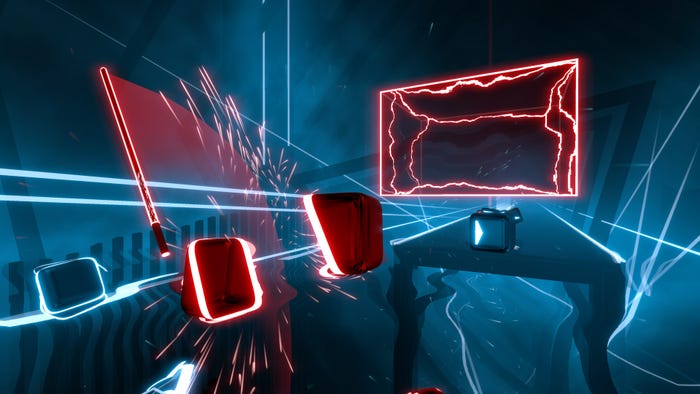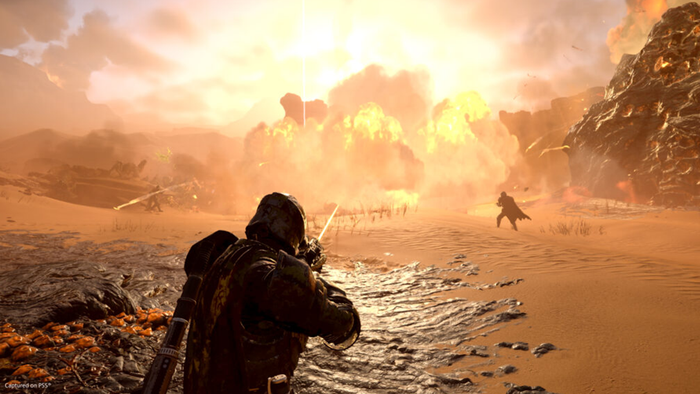
Featured Blog | This community-written post highlights the best of what the game industry has to offer. Read more like it on the Game Developer Blogs.
Moral Relativism in Heavy Rain: Pre and Post-Partum
An examination of approaches to moral choices in a video game, and how significant life events can change one's perspective.

Moral Relativism in Heavy Rain: Pre and Post-Partum
Or, How Having a Baby Made Me a Murderer
By Valerie Valdes
WARNING: This article contains spoilers for Heavy Rain.
I consider myself an ethical person . I drive the speed limit. I don’t pirate music. I experience mild outrage when I see people cut in line. As my husband would say, in D&D alignment terms, I am almost embarrassingly, annoyingly lawful.
As such, I sometimes find myself faced with a moral conundrum in a video game that completely stymies me. Whatever the options are, none seem right. Even though I can intellectually accept that I am playing a game, that a character’s choices in no way reflect my morality, and that to progress further means I have to just pick something already… I can’t do it. I put down the game and walk away.
Heavy Rain was one such game. In it, a father has to perform a series of increasingly heinous tasks in the hopes of saving his child from a serial killer. This character has already lost one child, and is even concerned that he may himself be the villain in some strange multiple personality scenario, and is putting himself through hell as punishment.
His first task, driving the wrong way on a highway, was certainly illegal. People could die! I balked, but did it. His second was easier; slow, yes, and cringe-inducing, but crawling on broken glass didn’t make my moral compass spin. And cutting off his own finger? Please. I did it quickly, ruthlessly, and cauterized that sucker so fast I was almost confused when I realized the challenge was over. Bring it on, game! I am a pain machine!
But then I was told to kill a stranger. The level loaded. Gun in hand, I stared at someone’s front door. Who was this person? What had he done to deserve this? Was it fair to trade his life for the character’s child’s? It was only a game, but I couldn’t get past this point. I couldn’t make the choice. Even when I found out that the game could continue if I chose not to kill the person, that the child could be saved by another character, it wasn’t enough. I couldn’t make that decision in the context that was given to me. I was stuck.
It’s a good game that immerses one so fully in a world and character that his choices become your choices. Unlike the simple dichotomy most games present between good and evil, lawful and chaotic, paragon and renegade, this was a case where there was no clear right or wrong option. To which moral code could I appeal?
Kant’s categorical imperative was no help. In killing, was I implying that murder was acceptable? That murder to save a child was acceptable? That if someone else’s child was in danger, and killing me could save him, that I should shrug and take one for the team? None of those seemed like particularly good universal rules.
Utilitarianism felt too much like math, or engineering. Stick a kid on one end of a scale and an adult on the other, and measure whose life was worth more. What was the greater good? Which end justified what means? Could some cosmic calculus quantify this choice and render an answer to a terrible equation? Not likely.
Objectivism would have me act in my own enlightened self-interest. Well, it was in the character’s interest to save his son, certainly. But maybe it was more enlightened to avoid committing a serious crime? One that risked a lifetime in jail and, depending on the state, capital punishment? Ayn Rand didn’t help.
Maybe the more important question was: why was I thinking so hard about this instead of just playing?
Months passed. I occasionally considered going back to the game and forcing myself to, ahem, bite the bullet. But by then I was pregnant and dealing with all the assorted joys and perils of that delightful condition. I had bigger things to worry about than the plight of a fictional parent when I was so close to being a real one.
And now here I am, with a son of my own. I’ll probably never finish playing Heavy Rain, and I’ve made my peace with that. At best, I can sneak in a few minutes of Hero Academy on my phone while he naps. Still, when I watch him play with a toy, or stick something inappropriate in his mouth, or smile at me with his four tiny teeth, I think about that choice I couldn’t make. I think about morality, and murder, and what I would do for that little boy who came out of my belly. And you know what I think?
Bang.
About the Author(s)
You May Also Like













